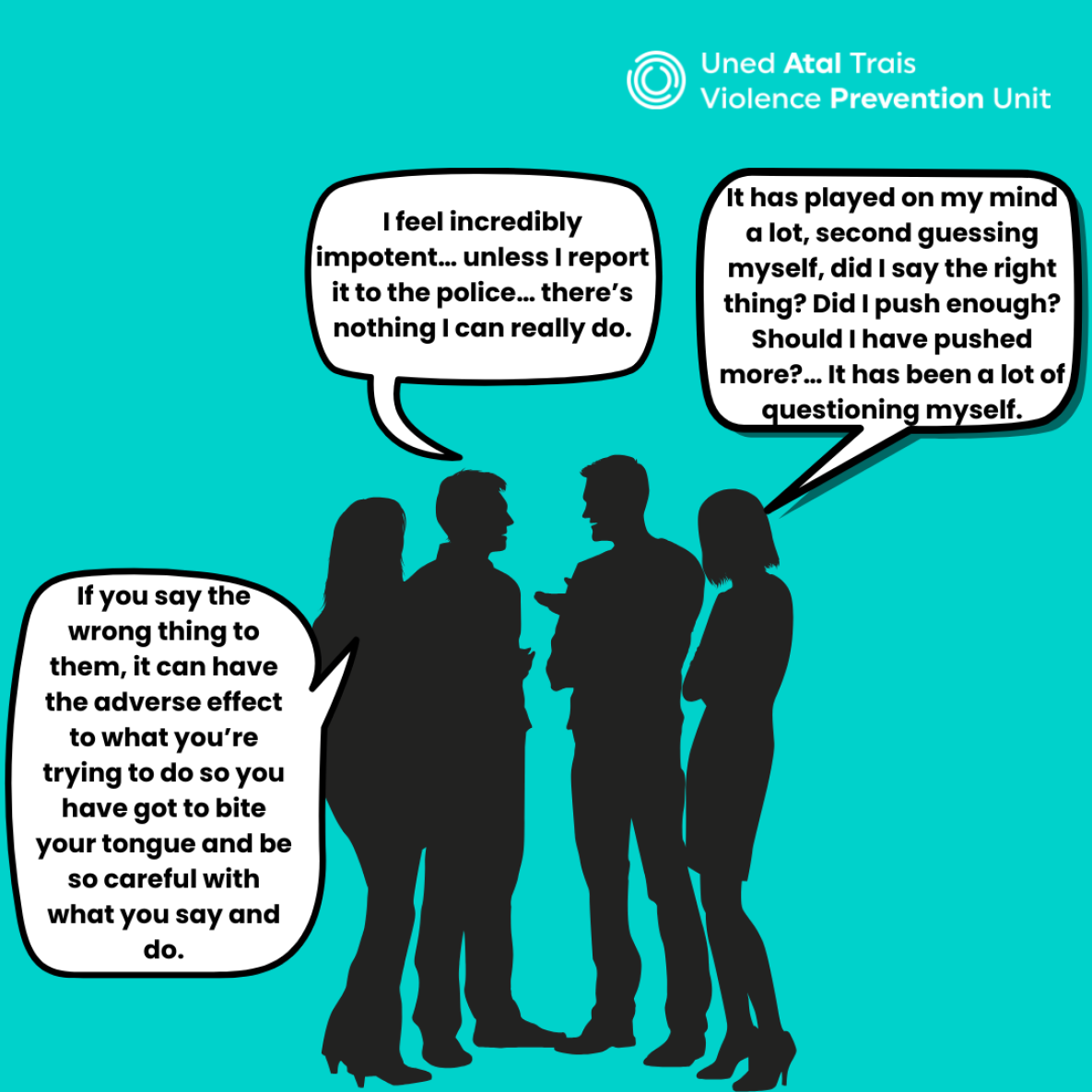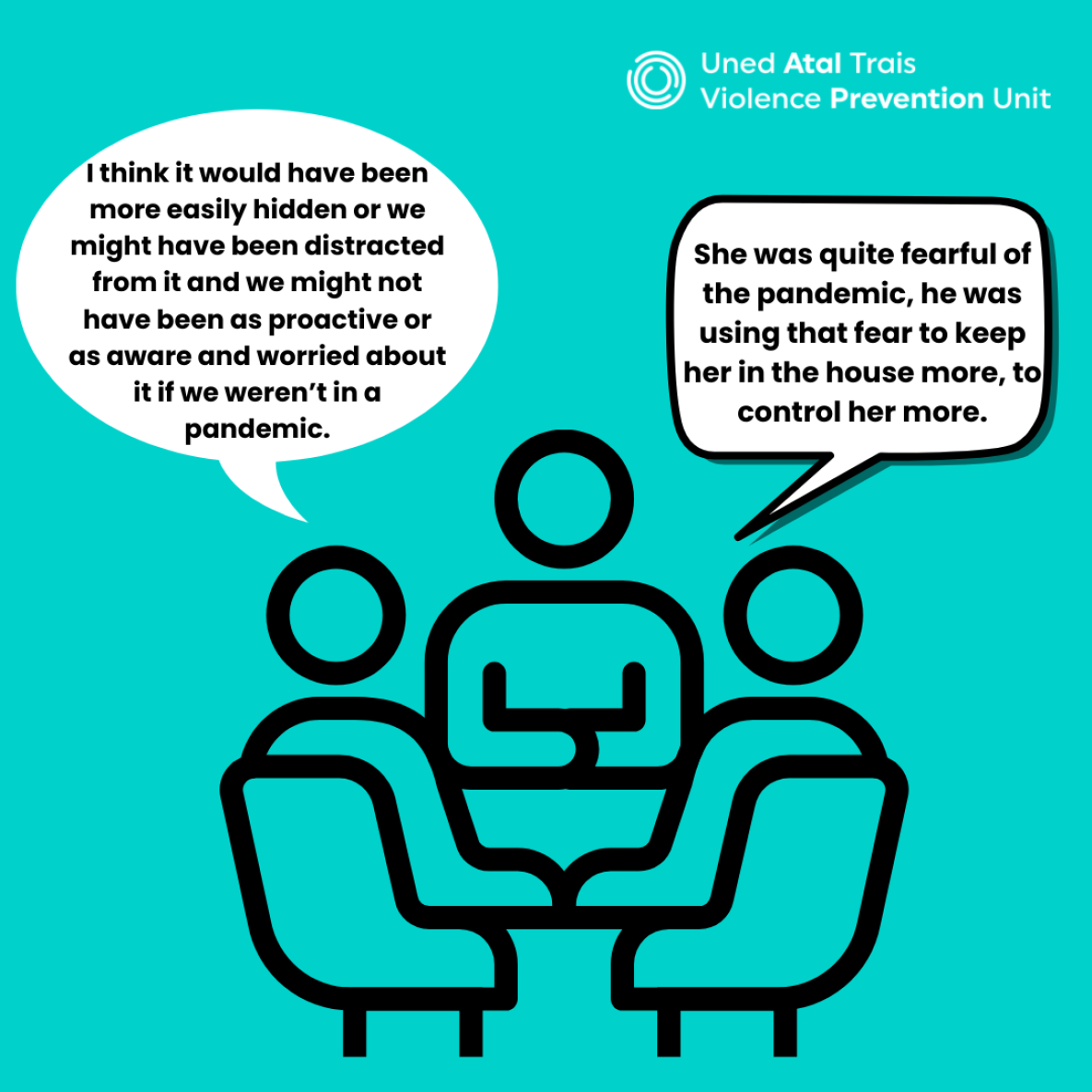Findings from a unique study, conducted during a COVID-19 national lockdown in Wales provides recommendations for ensuring people are better equipped in identifying domestic violence and abuse (DVA) and supporting those affected by it.

The Study
The Wales Violence Prevention Unit (VPU)’s research ‘Bystander experiences of domestic violence and abuse during the COVID-19 pandemic’ was recently published in the Journal of Gender-Based Violence. The research, funded by Public Health Wales and led by a multi-disciplinary team from Wales VPU, Public Health Wales, University of Exeter, Durham University and Liverpool John Moores University reports on the experiences of 186 bystanders to DVA who were living or working in Wales since the pandemic began in March 2020. This study indicates that whilst DVA was exacerbated due to pandemic restrictions, those restrictions also increased opportunities for bystanders to become aware of DVA and take action to support victims.
Study findings
The research, which consisted of an online survey and interviews, identified that most participants reported witnessing or having concerns about coercive control (90%), with 87% of those respondents reporting that they had taken action in response to witnessing this behaviour. This finding demonstrates that whilst the criminalisation of coercive control is fairly recent in England and Wales, study participants were attuned to the behaviour and largely recognised the importance of taking action to prevent it.
Overall, the study found that the majority of study participants who had witnessed DVA or its warning signs did take action, with most of these participants offering support to the victim. Responses demonstrated that bystanders who had completed DVA training in the past five years were more likely to take action against DVA and support the victim, this was largely because they felt they possessed the correct skills and confidence to take action. Conversely, bystanders who did not take action after witnessing DVA reported that they did not feel like they possessed the required skills to do so. The study suggests having previously received DVA training played an important role in whether a bystander felt they were able to intervene and support the victim.
The study demonstrated how motivation for participants to act could be mapped against the bystander theory of change- participants who had taken action against DVA were those who had the opportunity to notice the event, recognise it as problematic, feel responsible to take action and, importantly, possess the right skills to act. Most bystanders also reported that witnessing or having concerns about DVA during the pandemic had negative emotional, social, physical and financial impacts on them. These findings are further supported by three quarters of survey respondents indicating that having DVA bystander training would be helpful, highlighting that knowing how to respond is essential to taking safe action. Bystander training may also help mitigate the negative impact experienced by most survey respondents.

“The COVID-19 pandemic provided a unique set of circumstances where domestic violence and abuse was exacerbated, but increased opportunities for bystanders to play an essential role in noticing DVA and supporting those affected. It’s vital that we take learning from the pandemic and associated restrictions so that we can better prevent violence in other public health emergencies.
Results from this study further iterate the need for community bystander training. Study respondents demonstrated that whilst many were able to notice the signs of domestic violence and abuse, and feel responsible to take action, not all were able to do so. On the whole, respondents were negatively impacted by their experiences- bystander training could mitigate the negative impact on wellbeing and provide bystanders with the necessary knowledge, skills and confidence to take action when they become aware of DVA; both during public health emergencies, and within their daily lives”
Dr Alex Walker, LEad Researcher
Study recommendations
This research provides a unique perspective on DVA during a global pandemic, and therefore provides important new evidence that can contribute to DVA prevention during public health emergencies.
The study recommends the development of evidence-based and theoretically informed bystander training programmes and public awareness campaigns, which include information on support for bystanders, to better equip bystanders to recognise DVA and support those who have been affected by it. Possessing these necessary skills could mitigate the negative impacts experienced by bystanders.
When it comes to public health emergencies, the study recommends that these training programmes and campaigns should include specific messaging consistent with any additional health guidance or restrictions, as this could further mitigate the impact on bystanders’ wellbeing.
The full article is available open access on the Journal of Gender-Based Violence. Read it by clicking here.